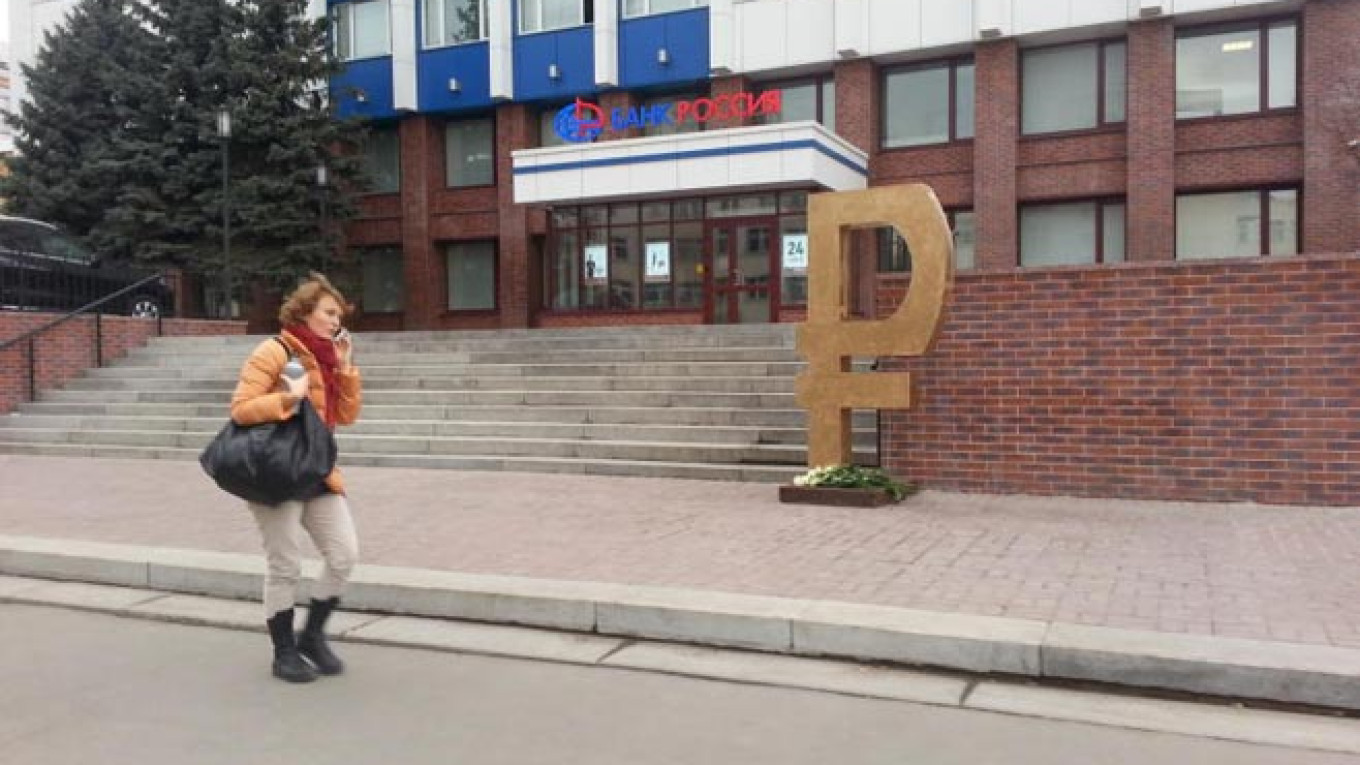The ruble strengthened to below 35 to the dollar on Tuesday for the first time since mid-February, before the escalation of the political crisis in Ukraine and the annexation of Crimea by Russia.
Since peaking at 36.6 rubles to the dollar on March 13, the Russian currency has gradually recovered. At 10:30 a.m. on the Moscow Exchange, the ruble dipped to 34.96 against the dollar, before rising again to trade slightly above the 35 mark throughout the day.
At 8 p.m. Moscow time the ruble was trading at 35.12 to the dollar. Against the euro the ruble was trading at 48.48, and the Russian currency was at 41.13 against the euro-dollar currency basket.
Behind the ruble's gain is the easing of tensions over the political situation in Ukraine, analysts said. Fears that Russia would send its military into eastern Ukraine have ebbed since the country's upper house of parliament approved the use of troops on March 1.
''One of the main reasons for the ruble's weakening was the growth of geopolitical tension. Now there are more and more signs that that tension is abating, leading to a reduction in demand for hard currency and to a partial return to the ruble," Alexander Morosov, chief economist at HSBC in Russia, told Vedomosti.
On a longer time-scale, however, the ruble is still depreciating, as Russia's economy slows and capital shifts from emerging markets to developed ones, which are recovering after a period of stagnant growth. At the beginning of the year, the ruble was trading at 33.2 to the dollar and 45.3 to the euro, meaning that the Russian currency has weakened by 5.8 percent against the dollar and almost 7 percent against the euro.
A Message from The Moscow Times:
Dear readers,
We are facing unprecedented challenges. Russia's Prosecutor General's Office has designated The Moscow Times as an "undesirable" organization, criminalizing our work and putting our staff at risk of prosecution. This follows our earlier unjust labeling as a "foreign agent."
These actions are direct attempts to silence independent journalism in Russia. The authorities claim our work "discredits the decisions of the Russian leadership." We see things differently: we strive to provide accurate, unbiased reporting on Russia.
We, the journalists of The Moscow Times, refuse to be silenced. But to continue our work, we need your help.
Your support, no matter how small, makes a world of difference. If you can, please support us monthly starting from just $2. It's quick to set up, and every contribution makes a significant impact.
By supporting The Moscow Times, you're defending open, independent journalism in the face of repression. Thank you for standing with us.
Remind me later.


